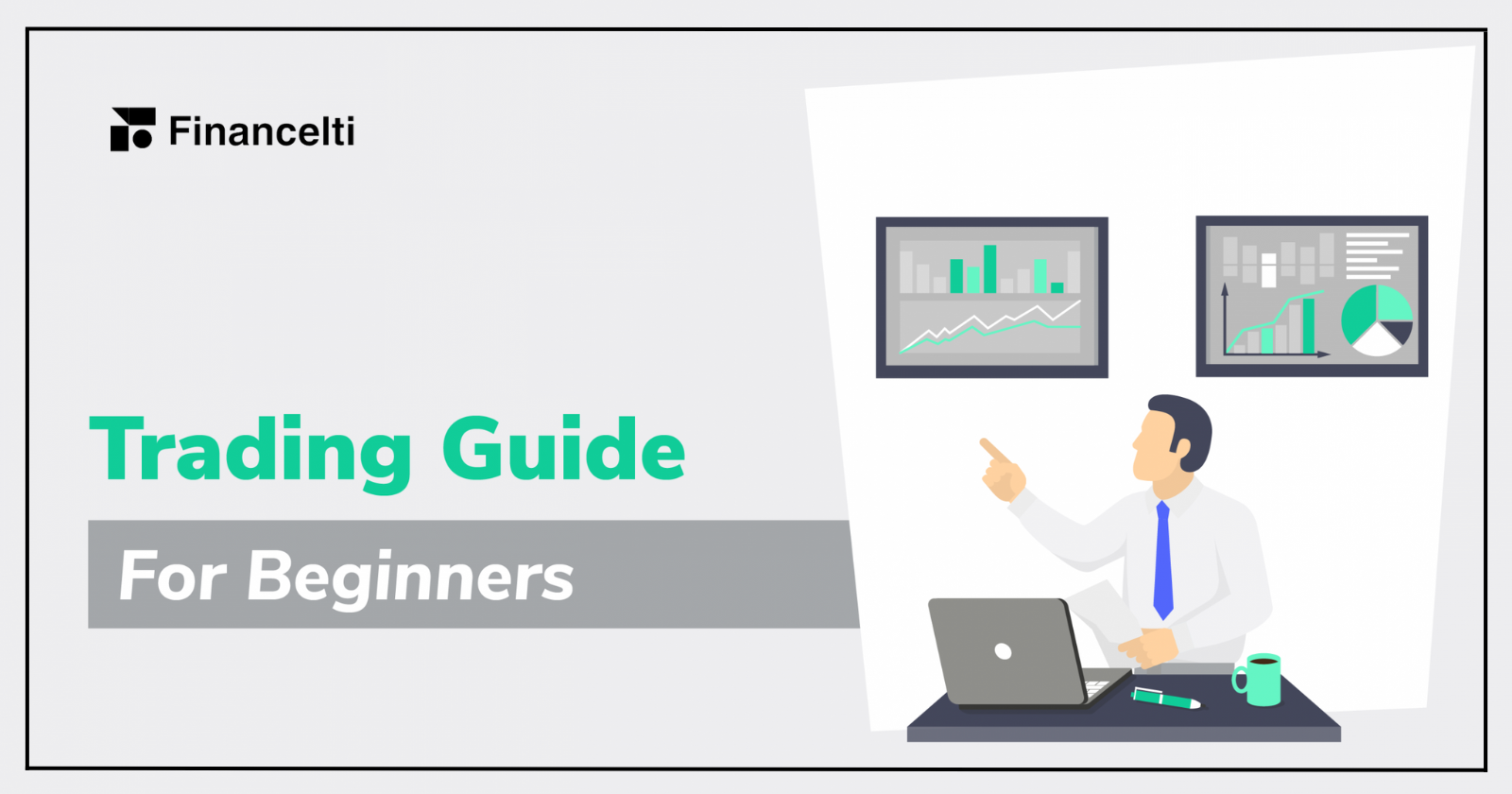How to Start Trading in India?
Trading in the Indian stock market can be a lucrative venture for those looking to grow their wealth. However, getting started can be intimidating, especially for beginners. In this guide, we will walk you through the process of how to start trading in India, step by step. From choosing an online broker to opening a demat and trading account, adding funds, and making your first trade, we’ve got you covered. So let’s dive in!
Four steps to start online trading in India
- Choose an online broker. The first step will be to find an online stockbroker.
- Open demat and trading account.
- Login to your Demat/ trading account and add money.
- View stock details and start trading.
Table of Contents
Choose an Online Broker
The first step in starting your trading journey is to find a reliable online stockbroker. These brokers provide the necessary platform and services to open a demat and trading account. As you begin your search, consider factors such as account opening charges, annual maintenance charges (AMC) for the demat account, and brokerage fees.
Bajaj Financial Securities Limited offers a compelling option for new traders with its Freedom Pack. This plan allows you to open a free* demat and trading account with zero account opening charges and zero AMC for the first year (AMC of Rs. 431 per annum is applicable from the second year onwards). Additionally, they offer a flat fee per trade, which can save you significant money on brokerage charges.
Open a Demat and Trading Account
Once you have selected an online broker, the next step is to open a demat and trading account. This account combination is essential for buying and selling shares in India. The process of opening an account is simple and can be completed in less than 15 minutes.
To open an account with Bajaj Financial Securities, follow these steps:
- Visit the account opening form link provided by the broker.
- Enter your basic details, such as name, email ID, PAN number, and date of birth.
- Provide your address and bank details.
- Upload the necessary documents for proof of identity and address.
- Choose a subscription plan that suits your needs. If you want to open a free* account, select the Freedom Plan.
- Perform a self-verification by recording a short video of yourself and submitting it.
- E-sign the form using the OTP sent to your Aadhaar-linked mobile number.
- Submit the application and wait for confirmation regarding your account opening and login credentials.
Login to Your Demat/Trading Account and Add Money
After successfully opening your demat and trading account, you can log in to your account and explore the trading platform. If you have chosen Bajaj Financial Securities as your broker, you can download their mobile trading app for a seamless trading experience.
Now it’s time to add money to your trading account. You can transfer funds from your bank account to your trading account easily. This will allow you to have funds readily available for making trades. It’s important to note that you can also transfer money from your trading account back to your bank account when needed.
View Stock Details and Start Trading
With your demat and trading account set up and funds added, you are now ready to start trading in India. The trading platform provided by your broker allows you to view live market prices, historical data, charts, and other relevant information about stocks.
When researching stocks, it’s crucial to conduct a thorough analysis. This typically involves two methods: fundamental analysis and technical analysis.
Fundamental Analysis
Fundamental analysis involves evaluating a company’s valuation, key ratios, and intrinsic value. This analysis helps you determine whether a stock is overvalued or undervalued. If the market price exceeds the intrinsic value, it may be wise to wait for a price drop. On the other hand, if the market price is lower than the intrinsic value, it could be a buying opportunity.
Technical Analysis
Technical analysis focuses on price trends and trading volume. By studying charts and using indicators like Bollinger Bands, MACD, and candlestick patterns, you can forecast the direction of a stock’s price. Technical analysis is valuable for identifying trends and potential entry or exit points.
It’s important to note that before making any investment decisions, it’s wise to conduct due diligence. Stay updated on news and research companies thoroughly. Seeking recommendations from your broker can also provide valuable insights.
Once you have completed your analysis and are ready to make a trade, you can place buy or sell orders through your trading account. Take the time to set appropriate order types, such as market orders or limit orders, to ensure your trades are executed as desired.
Conclusion
In conclusion, starting your trading journey in India is a manageable process when you follow these steps. Choose a reliable online broker, open a demat and trading account, add funds, and start trading. Remember to conduct thorough research, analyze stocks using fundamental and technical analysis, and make informed investment decisions. With dedication and practice, you can navigate the Indian stock market and potentially achieve your financial goals.
FAQs
Can I start trading in India without a Demat account?
No, a demat account is necessary for trading in India. It holds your shares in a digital format and allows for easy buying and selling.
What is the difference between a trading account and a demat account?
A trading account is used to place buy or sell orders in the stock market, while a demat account is used to store the shares you buy in a digital format.
How much money do I need to start trading in India?
The amount of money needed to start trading in India depends on your individual budget and investment goals. You can start with as little as a few thousand rupees.
Are there any tax implications for online trading in India?
Yes, profits from online trading are subject to taxation. It’s important to declare all profits and consult with a tax professional to ensure compliance with tax regulations.
Are there any risks involved in online trading?
Yes, like any form of investment, there are risks involved in online trading. It’s important to educate yourself, conduct thorough research, and make informed decisions to minimize risks.
How can I improve my trading skills?
Improving your trading skills requires practice, continuous learning, and staying updated on market trends. Utilize educational resources provided by your broker and consider attending trading courses or webinars.
Can I trade in international stocks through an Indian broker?
Yes, some Indian brokers offer the option to trade in international stocks. However, it’s essential to check with your broker regarding their offerings and any associated fees.
Can I trade on mobile devices?
Yes, most online brokers provide mobile trading apps, allowing you to trade conveniently on your smartphone or tablet.
Is online trading suitable for beginners?
Yes, online trading can be suitable for beginners. However, it’s important to start with a solid understanding of the basics, conduct research, and take a cautious approach.
How often should I monitor my trades?
The frequency of monitoring your trades depends on your trading strategy and individual preferences. Some traders prefer to monitor their trades closely throughout the day, while others take a more long-term approach.
Remember, online trading involves risks, and it’s important to invest only what you can afford to lose. Always seek professional advice and make informed decisions.
*Disclaimer: This article is for informational purposes only and does not constitute financial advice. Trading in the stock market involves risks, and past performance is not indicative of future results.
Also Read : Tradeable Assets and Markets: Unlocking Trading Opportunities









